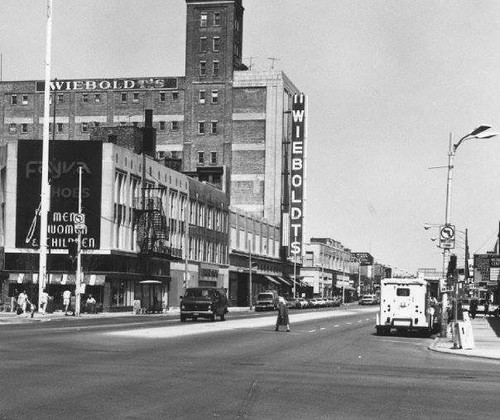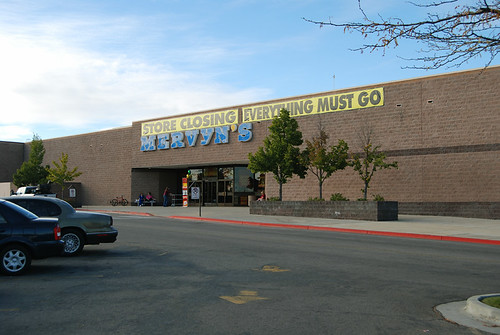Retail failure, leveraged buyouts/private equity, and "fraudulent conveyance"
There's lots of coverage in the media about business failure of retailers like Toys R Us ("Who Killed Toys 'R' Us? Hint: It Wasn't Only Amazon," Wall Street Journal), the Bon Ton Department Store chain, and now the bankruptcy of Sears as a product of private equity control of these businesses.
That's true.
Private equity loads onto the business tons of debt, usually alongside big and costly management fees to the owners, and high "salaries" for the people at the top of the corporation.
Often the real estate is separated from the operating business. And they care zero about the effects on workers or communities.
From the standpoint of setting up a business for success, what these steps do is set up the business for failure, because only in the best of business conditions--growth, growth, growth--does the business have enough cash flow to operate the business. Even if operations are successful, the debt load makes it difficult to set aside any money for investment in capital improvements.
Recession; a shift of even a small amount of sales to e-commerce competitors, the need to invest in e-commerce and IT; etc. is enough to drive the company into failure, even if a number of the store locations remain profitable.
But this isn't new.
My best friend in college used to say that I read the business section of newspapers like most guys read the sports section. So I remember the various failure of other retail chains over private equity type circumstances.
 The Wieboldt's store in Lakeview ( Lincoln Ave and School Street). Today, the first two floors are commercial and the other floors have been remodeled into condos, "The Tower Lofts
The Wieboldt's store in Lakeview ( Lincoln Ave and School Street). Today, the first two floors are commercial and the other floors have been remodeled into condos, "The Tower LoftsThe first that I can remember is the failure of the department store chain in Chicago, Wieboldts.
The company started in a neighborhood, expanded to other neighborhoods and outlying towns and eventually opened a downtown store.
They failed after a leveraged buyout. A lawsuit with the argument of "fradulent conveyance" was mounted--fraudulent conveyance meant that the buyout set up the company on a path to failure that was foreordained.
-- WIEBOLDT STORES, INC., individually and on behalf of its Official Committee of Unsecured Creditors, Plaintiff, v. Jerome M. SCHOTTENSTEIN, et al., Defendants (1988)
From the suit:
Wieboldt's complaint against the defendants concerns the events and transactions surrounding a leveraged buyout ("LBO") of Wieboldt by WSI Acquisition Corporation ("WSI"). WSI, a corporation formed solely for the purpose of acquiring Wieboldt, borrowed funds from third-party lenders and delivered the proceeds to the shareholders in return for their shares. Wieboldt thereafter pledged certain of its assets to the LBO lenders to secure repayment of the loan.
The LBO reduced the assets available to Wieboldt's creditors. Wieboldt contends that, after the buyout was complete, Wieboldt's debt had increased by millions of dollars, and the proceeds made available by the LBO lenders were paid out to Wieboldt's then existing shareholders and did not accrue to the benefit of the corporation. Wieboldt's alleged insolvency after the LBO left Wieboldt with insufficient unencumbered assets to sustain its business and ensure payment to its unsecured creditors. Wieboldt therefore commenced this action on behalf of itself and its unsecured creditors, seeking to avoid the transactions constituting the LBO on the grounds that they are fraudulent under federal and state fraudulent conveyance laws.
 Similarly, the West Coast-based Mervyns chain had been owned by what is now called Target.
Similarly, the West Coast-based Mervyns chain had been owned by what is now called Target.When they were sold in 2004 to private equity buyers, Sun Capital, the real estate assets were separated from the operating stores, and come a recession, the company failed, lasting for not quite five years under private equity ownership.
Real estate operators acquisition of department store companies. But there were other examples too, of retail companies bought for their real estate assets, including the Taubman shopping mall company buying the DC based Woodward & Lothrop Company (1984) and Philadelphia's Wanamakers Department Stores (1986), and eventually selling the locations and shuttering the companies.
Canadian real estate developer Robert Campeau ended up starting the consolidation of many retail department store companies into the national Macy's chain, buying Allied Stores (1986) and Federated Stores (1988). Those companies became bankrupt and Macy's ended up merging with them(1994), eventually repositioning what had been regional chains into one brand, Macy's, with a national footprint.
In short, when non-retailers buy retail companies, especially for financialization opportunities and/or to harvest the value of real estate, it usually doesn't bode well for the retailer nor for the employees.
Labels: business consolidation, commercial district revitalization planning, financial engineering, formula retail, retail planning




1 Comments:
This is a very interesting read. My mother used to work for a company called Two Guys when she was in college.
Post a Comment
<< Home